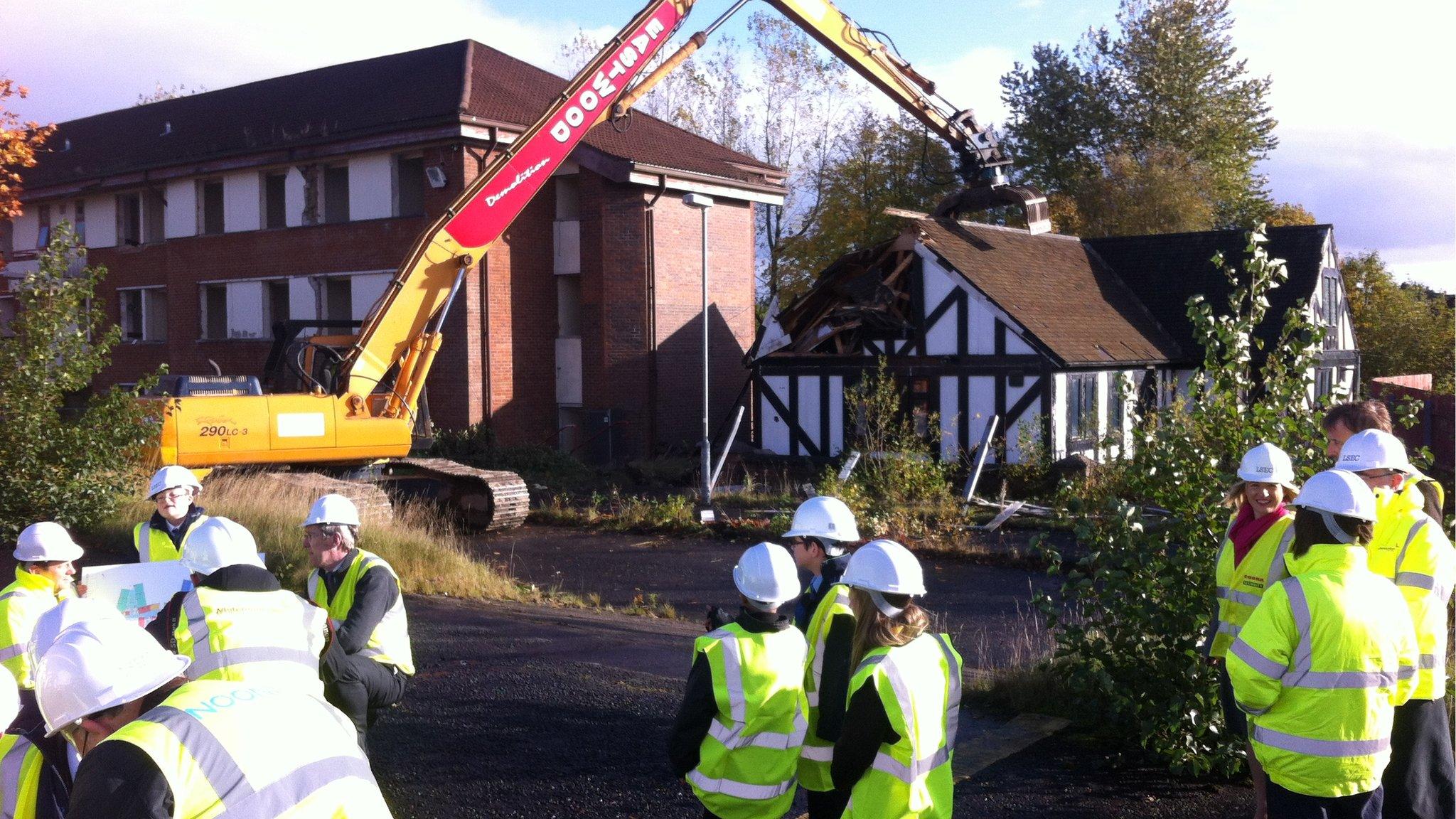Only 'small number' of NI schools to get building funds
- Published
- comments
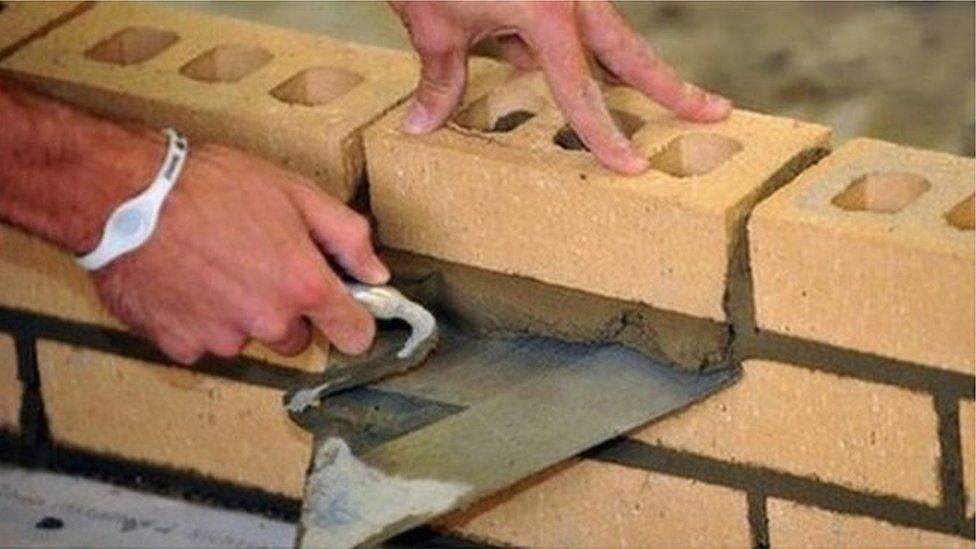
Construction work will only go ahead in a small number of Northern Ireland's schools
More than 160 schools in Northern Ireland are waiting to find out if crucial building work will be carried out.
Work will only go ahead in "a small number" of those schools, according to the permanent secretary of the Department of Education, Derek Baker.
Mr Baker said that a "constrained budget" would limit the running of the school enhancement programme.
The warning came in a letter from Mr Baker to SDLP MLA Nichola Mallon.
The school enhancement programme is a departmental scheme to meet pressing building needs in schools where major rebuilds are not possible.
It pays for building work costing between £500,000 and £4m.
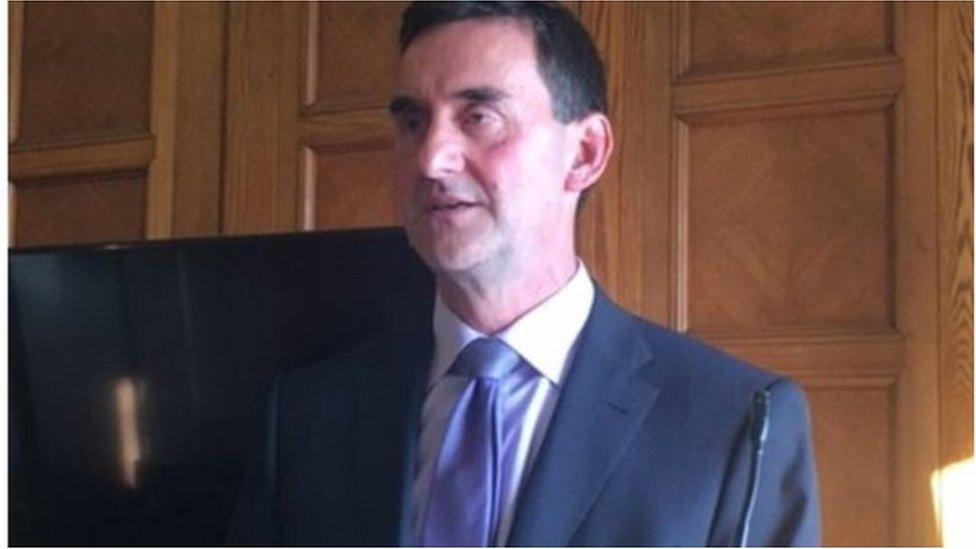
In October, Derek Baker warned the department was in a 'very difficult space' financially
Ms Mallon had written to Mr Baker to ask about an application for new classrooms at Hazelwood Integrated College in north Belfast to replace mobile classrooms.
In reply, Mr Baker said that Hazelwood was one of 165 applications for school building work under the programme.
"We expect the constrained budget will only allow a small number of projects to progress in the initial announcement," he said.
"It is unlikely what we will know which schemes will be funded until such times as a minister for education is appointed."
'Writing to Santa'
Hazelwood's principal Kathleen O'Hare criticised what she called an "unwillingness of the civil servants to become political in making decisions".
Hazelwood had applied for £3.9m to resolve accommodation issues, as its enrolment was due to rise to 1,010 pupils, while the school was originally built to hold 720.
"We applied for £3.9m to solve our accommodation issue," she said.
"The response shows little grasp of what actions schools need to take to increase numbers or understanding of the educational landscape of north Belfast.
"I simply do not agree that the permanent secretary cannot make these decisions."
Ms O'Hare said she had made various applications for funding recently and felt like "an adult writing to Santa knowing that Santa is never going to say yes to someone who is an adult".
'Simple options'
On Monday, a department of finance briefing paper said that the education budget would remain protected in 2018/19 and 2019/20.
However, it warned: "The outcome for education would be extremely challenging as a number of significant cost pressures could not be funded."
School funding, for example, would be at "levels below those required to address current and anticipated pressures arising from pay and price inflation."
The briefing paper also contained a number of revenue-raising ideas which could impact on schools and universities.
These included introducing a charge for some pupils to receive school transport.
The educational maintenance allowance, which helps 16-19 year olds from low-income families, could be removed or reduced.
The number of teachers trained locally could also be cut by around 200.
In higher education, the paper said there could be an increase in tuition fees by 2020-21 to raise more money for universities.
Meanwhile, government studentships - which pay fees and maintenance for some post-graduate courses - could be targeted.
However, the Department for Finance paper said that the measures were "simply options" which may not be taken forward.
- Published19 December 2017

- Published3 October 2017
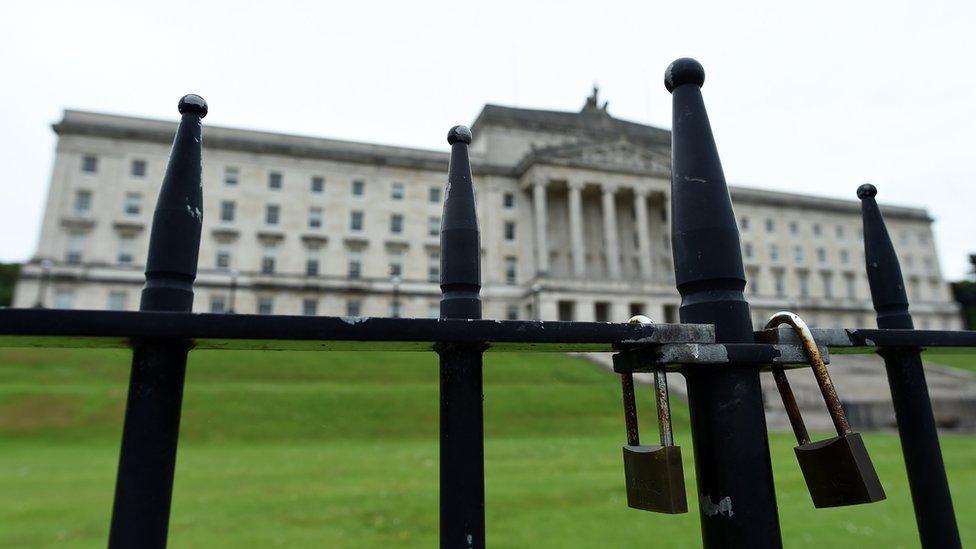
- Published18 September 2017
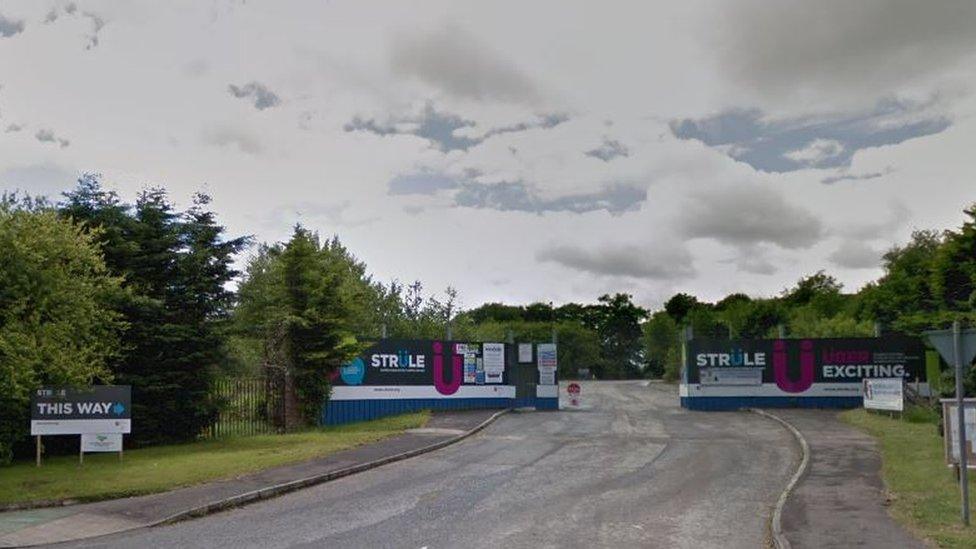
- Published23 October 2013
